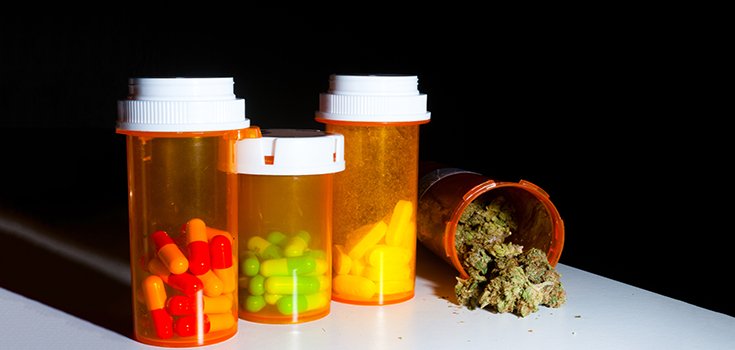Another Study: Medical Marijuana Reduces Opioid Prescriptions

Unless you’ve been living under a rock, you’ve probably heard that the number of opioid prescriptions doled out by doctors actually declines in states with medical marijuana laws. But in case you missed it, here is yet another recently published study showing exactly that.
Researchers from the University of California San Diego and Weill Cornell Medical College wrote:
“In this study, we found that statewide medical cannabis legalization implemented in 1993 – 2014 in the U.S. was associated with close to 30% reductions in Schedule III opioids received by Medicaid enrollees.” [1]
For the study, researchers calculated how much patients would have spent on opioid painkillers and estimated that medical marijuana legalization in states that have adopted it saves the federal government a mind-blowing $7.46 million in annual Medicaid spending. Furthermore, states with medical marijuana laws saved themselves a total of about $6.54 million.
What’s more, the study found that if all states had adopted medical cannabis laws by 2014, “Medicaid annual spending on opioid prescriptions would be reduced by $17.8 million.”
The research also shows that medical cannabis legalization was associated with a:
- 29.6% reduction in the number of prescriptions
- 29.9% reduction in dosage
- 28.8% reduction in related Medicaid spending. [2]
However, the study did not find a correlation between allowance of medical marijuana and use of Schedule II drugs, which are far more restricted. [1]
The authors of the study said:
“[E]vidence suggested that cannabis provides mild to moderate relief from pain, on par with Codeine, making cannabis a better alternative to Schedule III opioids. Although there is emerging evidence suggesting that cannabis is effective in treating severe pain, no studies compared the analgesic efficacy of the cannabinoids with Schedule II opioids.
Due to the concern of cannabis’ lack of efficacy on severe pain symptoms, patients prescribed Schedule II opioids might be less likely to switch to cannabis and physicians might be less likely to recommend medical cannabis to these patients.” [1]
We have written about numerous surveys and studies that show access to medical cannabis reduces opioid use.
For instance, a study published in September 2016 shows that people use fewer opioid drugs when they have access to legal medical marijuana. Specifically, researchers found an association between medical marijuana and a decrease in testing positive for opioids after dying in a car crash, particularly among drivers aged 21 to 40.
And the results of a survey released in 2017 showed that 42% of respondents were able to replace their opioid pain relievers with cannabis.
Sources:
[1] Forbes
[2] SFGate
